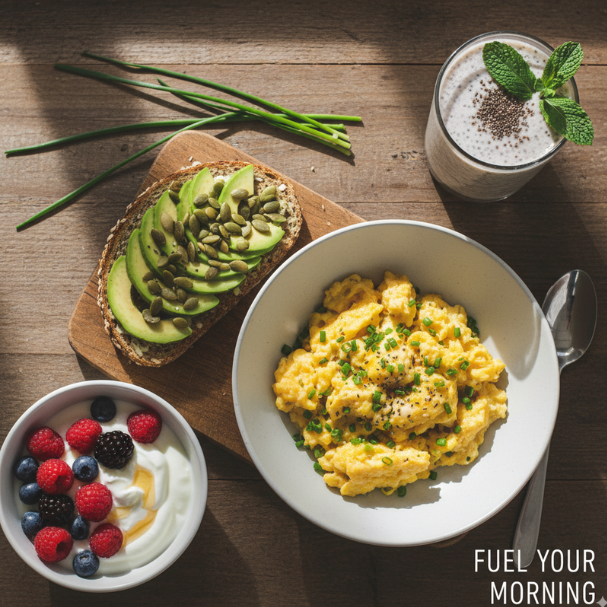Protein is often called the building block of life, and for good reason. Every cell in your body contains protein, and it plays a role in nearly every function that keeps you alive and thriving. From repairing tissues and fueling muscles to supporting your immune system and carrying oxygen throughout your bloodstream, protein is indispensable. Despite its importance, many people underestimate just how vital it is to consume enough protein daily. Understanding the power of protein and why it’s truly your body’s best friend can help you make better choices when it comes to your diet and overall health.
What is Protein?
Protein is one of the three primary macronutrients, along with carbohydrates and fats, that your body needs in significant amounts to function properly. It is made up of smaller units called amino acids, which act like tiny building blocks. There are 20 different amino acids, and while your body can produce some of them, nine are considered essential because you must obtain them from food. These essential amino acids are found in high-quality protein sources such as eggs, poultry, dairy, fish, and plant-based options like beans and quinoa.
Proteins are not stored in the body in the same way as carbohydrates and fats, meaning your body needs a consistent supply. Without enough protein, essential processes slow down, tissues can weaken, and energy levels may suffer.
The Role of Protein in the Body
Protein serves countless functions in your body. Some of the most important roles include:
Building and Repairing Tissues
Protein is critical for growth and repair. Whether it’s muscle fibers torn during exercise, skin tissues healing after an injury, or hair and nails growing stronger, protein ensures these processes happen smoothly. This makes it essential not only for athletes or active individuals but also for anyone recovering from illness, surgery, or simply going through daily wear and tear.
Enzyme and Hormone Production
Enzymes are proteins that speed up chemical reactions in the body. Without them, processes like digestion, energy production, and DNA replication would be extremely slow or even impossible. Hormones, which regulate everything from mood to metabolism, also rely on proteins. For instance, insulin is a protein hormone that helps control blood sugar levels.
Immune System Support
Your immune system relies on proteins to defend against viruses and bacteria. Antibodies, which identify and neutralize foreign invaders, are made of proteins. Without sufficient protein, your immune defenses may weaken, making it harder to fight infections.
Transporting Oxygen and Nutrients
Proteins play a key role in carrying vital substances around the body. Hemoglobin, a protein found in red blood cells, transports oxygen from your lungs to your tissues. Other proteins help move nutrients, vitamins, and minerals to the places they are needed most.
Maintaining Fluid and pH Balance
Proteins help regulate your body’s fluid balance by ensuring water is distributed correctly between tissues and the bloodstream. They also act as buffers to maintain a stable pH, keeping your body’s internal environment within the narrow range needed for optimal Function of Protein.
Why Protein is Essential for Daily Life
Unlike other macronutrients, protein is irreplaceable. While the body can store carbohydrates as glycogen and fats in adipose tissues for later use, there’s no dedicated storage system for protein. This means you need to replenish it regularly through your diet.

A diet lacking in protein can lead to fatigue, muscle weakness, brittle nails, slow recovery after illness or injury, and even a compromised immune system. On the other hand, consistently consuming enough protein ensures that your body remains strong, resilient, and efficient.
Protein and Muscle Health
One of the most recognized benefits of protein is its role in muscle development and maintenance. Muscles are primarily made of protein, and they depend on a steady supply to grow and repair themselves. This is why protein is often emphasized in discussions around strength training and exercise.
When you exercise, especially during resistance or strength training, small tears occur in muscle fibers. Protein helps repair these tears, making the muscles stronger and more resilient over time. Even for those who don’t exercise intensively, protein is necessary to preserve muscle mass as part of healthy aging. Maintaining strong muscles supports mobility, balance, and overall quality of life.
Protein for Energy and Satiety
Although carbohydrates and fats are the body’s preferred sources of fuel, protein can also be used for energy when necessary. More importantly, protein helps keep you satisfied after meals. It slows down digestion, which means you feel full longer and experience fewer energy crashes throughout the day.
Including protein-rich foods in your meals can help stabilize energy levels, reduce cravings, and keep you mentally focused. Whether it’s starting your morning with eggs or snacking on Greek yogurt in the afternoon, protein provides steady fuel that keeps your body and brain functioning efficiently.
The Importance of Protein for Healthy Aging
As we age, the body naturally loses muscle mass in a process called sarcopenia. This decline in muscle strength can affect mobility, balance, and independence. Adequate protein intake can slow down this process, helping older adults maintain muscle function and stay active longer.
Protein also plays a role in maintaining bone health. While calcium and vitamin D are often highlighted for strong bones, protein is just as crucial. Studies show that individuals who consume enough protein have better bone density, reducing the risk of fractures.
Plant-Based and Animal-Based Protein Sources
Protein comes from both animal and plant sources, and both can contribute to a healthy diet. Animal proteins such as meat, poultry, fish, eggs, and dairy are considered complete proteins because they contain all essential amino acids. Plant-based proteins, such as beans, lentils, nuts, seeds, and whole grains, are often incomplete, but combining them can provide a complete amino acid profile.
For example, eating rice with beans or peanut butter on whole-grain bread creates a balanced protein combination. With the rise of vegetarian and vegan lifestyles, more attention is being paid to ensuring plant-based diets include sufficient protein. Quinoa, soy, chia seeds, and hemp seeds are excellent plant-based protein sources that contain all essential amino acids.
How Much Protein Do You Need?
Protein needs vary depending on age, gender, activity level, and overall health. While the general guideline is about 0.8 grams of protein per kilogram of body weight per day for the average adult, many people benefit from slightly higher intakes, especially if they are physically active.
Athletes, pregnant women, older adults, and individuals recovering from illness or injury may require more protein to meet their body’s demands. Spreading protein intake evenly across meals rather than consuming it all at once can also maximize absorption and effectiveness.
Signs You May Not Be Getting Enough Protein
Not consuming enough protein can show up in several ways. Some common signs include constant fatigue, thinning hair, brittle nails, frequent illness, swelling in the hands and feet due to fluid imbalance, and difficulty building or maintaining muscle. Paying attention to these signs and adjusting your diet accordingly can make a significant difference in overall well-being.
Practical Tips for Adding More Protein to Your Diet
Incorporating more protein into your meals doesn’t have to be complicated. Here are some simple strategies:
-
Start your day with protein-rich foods like eggs, cottage cheese, or a protein-packed smoothie.
-
Choose snacks such as nuts, seeds, yogurt, or roasted chickpeas.
-
Add legumes like beans and lentils to soups, salads, and casseroles.
-
Include lean meats, poultry, or fish in your main meals.
-
Explore plant-based options like tofu, tempeh, or quinoa for variety.
-
Pair plant proteins together to create a complete amino acid profile.
Consistency is key, so aim to include a source of protein in every meal and snack.
Protein Myths Debunked
Despite its importance, protein is often surrounded by misconceptions. One common myth is that eating too much protein is harmful for the kidneys. For healthy individuals, this is not supported by scientific evidence. Another myth is that only athletes need a lot of protein. In reality, everyone needs adequate protein to support daily functions, regardless of activity level.
There’s also a misconception that plant-based diets can’t provide enough protein. With careful planning and a variety of protein-rich plant foods, it is entirely possible to meet protein requirements without animal products.
The Future of Protein in Nutrition
As global populations grow and sustainability becomes a bigger concern, alternative protein sources are gaining attention. Plant-based proteins, lab-grown meat, and insect protein are emerging as environmentally friendly solutions to meet the world’s nutritional needs. While these may sound unconventional now, they reflect the growing recognition of protein’s central role in health and survival.
Final Thoughts
Protein truly is your body’s best friend. From building muscles and supporting immunity to maintaining healthy skin, hair, and bones, it is involved in almost every process that keeps you alive and thriving. By ensuring that you consume a balanced and consistent supply of protein daily, you give your body the fuel it needs to repair, grow, and stay strong at every stage of life.
No matter your age, lifestyle, or dietary preferences, making protein a priority will always pay off. It’s not just about adding strength to your body—it’s about empowering every cell to function at its best. When you appreciate the power of protein, you understand why it deserves a central place in your diet and why it truly earns the title of your body’s best friend.
At Ciranox, we make it simple to start prioritizing your nutrition today. All you need to do is fill up our sign up form to get your subscription and begin a personalized journey that supports your protein needs and overall wellness. With Ciranox, optimal health is just a click away.




